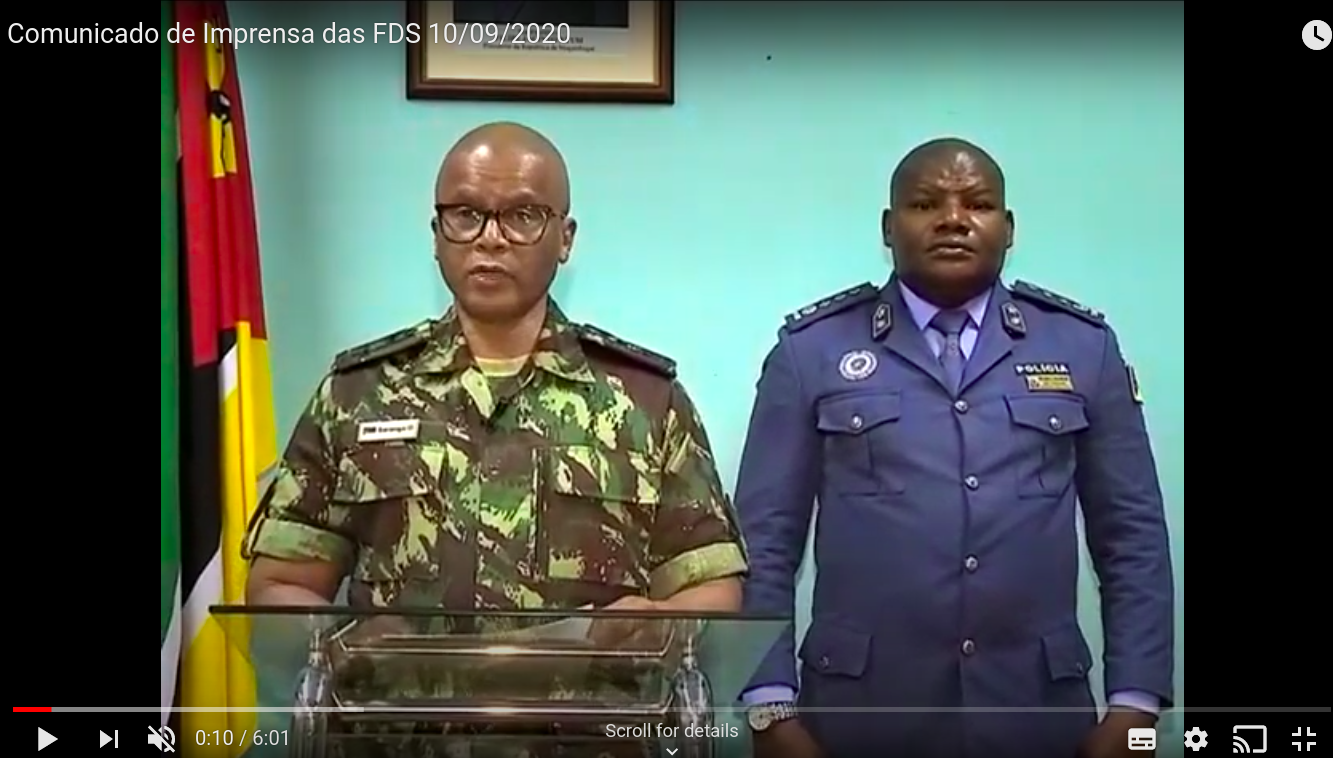Mozambique’s ministry of defence yesterday denied involvement in any torture or human rights abuses in Cabo Delgado, in response to allegations from Amnesty International — suggesting the videos and photos seen by Amnesty could be of members of the insurgency in Cabo Delgado in government uniforms.
In a statement read out on national television on Thursday morning, ministry of defence spokesman Omar Saranga also accused Amnesty International of having remained silent in the face of “barbarism” by the insurgents in Cabo Delgado. However, an Amnesty spokesperson said the organisation has been “vocal in condemning the armed group known locally as al-Shabaab”. In 2018 Amnesty condemned the insurgents’ “brutal killing spree”, and in 2020 it denounced the “horrific violence at the hands of armed opposition groups, which have gone on the rampage killing, beheading and dismembering their victims, looting and burning property.”
Download the government statement in full here
Amnesty’s approach to analysing the videos and images, which the human rights organisation said were evidence of torture and abuse by government forces, “did not take into account the nature of the dissimulated and reductionist propaganda of the terrorist group acting in Cabo Delgado, which aims to denigrate the image of the defence and security forces”, or FDS, Saranga said.
“The tortures, attempts at beheading, and other abuses, referred to in [Amnesty’s] statement as practiced by elements wearing the uniform of the army, and of the [police unit] UIR, should not be seen as a definitive certainty, taking into consideration that one of the practices used by the terrorists in their macabre incursions against the population is to pass themselves off as members of the FDS,” Saranga continued.
In response, Amnesty said its investigation “examined a variety of videos filmed on different days, in different locations, and concerning different incidents, which are extremely unlikely to all have been staged by the armed group.
Download Amnesty’s response to Zitamar’s questions in full here
“In each case, the soldiers are wearing complete FADM [Mozambican armed forces] uniforms and speaking a language from the south,” said David Matsinhe, Amnesty’s Southern Africa researcher. “The content of messages spoken by the perpetrators also points to FADM. The insurgents do occasionally wear uniform pants here or shirts there, but these are dozens of men using complete uniforms with all the correct web gear, boots, flak jackets, etc.”
Matsinhe said Amnesty International and other human rights organisations have been calling for the government to investigate the “allegations of gross human rights violations by members of the security forces [which] emerged in 2017 and have continued to the present….However, the government has not undertaken any investigations or responded to calls for investigations” .
“Under international human rights conventions, to which Mozambique is a state party, the Mozambican government is the ultimate duty-bearer with the international obligation to protect, promote and fulfil human rights. As such, Amnesty International will continue to hold the Mozambican government to account within national, regional and international human rights standards,” Matsinhe said.









